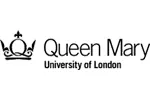About Medical Law, LLM - at Queen Mary, University of London (QMUL)
The School of Law at Queen Mary has particular expertise in the field of medical law. On this course, you will be taught by the leading experts in the field, who act as advisors to government and as regulators of new medical technologies. Colleagues from Barts and The London, Queen Mary`s School of Medicine and Dentistry will also contribute to this course.
Course contentThe course consists of two core modules, one optional module, and a dissertation in a topic of your own choosing within the overall field of the course to be submitted at the beginning of July. Teaching runs throughout the two semesters from September to Easter. Examinations take place in May - June.
The course can be taken either full-time or part-time. Part-time students study the two core modules in the first year and in the second year they take their optional module and complete their dissertation. For part-time students, attendance is one afternoon per week. For full-time students it is two afternoons per week.
Core modulesMedical Jurisprudence
Provides an introduction to concepts used in legal, philosophical and ethical discussions of contemporary medical issues and illustrates their application in relation to case studies. The concepts include rights, utility, autonomy, and beneficence and they are applied to dilemmas involving, for example, rights to treatment, the allocation of resources, genetic privacy, and definitions of death.
The Legal Regulation of New Medical Technologies
Examines legal responses to new developments in medical science. Although ethical issues are in the foreground, important legal questions arise. Which legal tradition can be called upon in response to new knowledge? What is the relationship between law and ethics in responding to new scientific knowledge? The areas covered include: the regulation of reproductive technologies, the status of the embryo and cloning.
Optional modules
Intellectual Property Aspects of Medicine
Examines the categories of intellectual property and the sources of intellectual property law (national, regional and international). Introduces the concept of patenting and examines it particularly in relation to human genetic material, medical research and public health.
Consent
Considers in more depth the central role of consent, its philosophical origins, its place in the western legal tradition and its application to treatment, research and organ/tissue donation. Areas of particular concern include: the assessment of competence, advance decisions, the overruling of a competent refusal (mental/physical disorder), data protection, clinical trials and stem cell research.
Advanced Medical Negligence
Analyses issues of medical negligence in greater depth, and particularly focuses upon the various ways in which Parliamentary internvation has impacted upon the liabilities of medical providers and the rights of medical consumers. Should the ‘good Samaritan’ be stautorily protected? Should a failure to warn of medical risks be treated as significantly as a failure to diagnose or treat? When should therapeutic privilege offer a good defence to a medical practitioner? Should statute govern liability for pre-natal injuries, psychiatric injury, and levels of compensation?
Mental Health Law
Considers the law relating to the treatment of those who lack capacity, and of patients suffering from mental disorders. Includes examination of community care, discrimination and human rights.
AssessmentThe assessment method varies between the taught modules but will include extended essays and written examinations. In addition there is the dissertation of 10,000-15,000 words.
Entry requirementsYou will normally be expected to have been awarded (by the time of actually beginning the MA/MSc course) a first or upper-second class degree (or international equivalent) in a relevant field of study, for example in law, medicine, nursing or public administration. Professional experience is also taken into account, particularly where an applicant is not offering the standard qualification.


